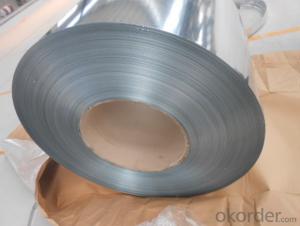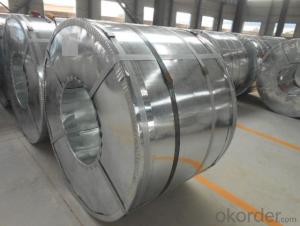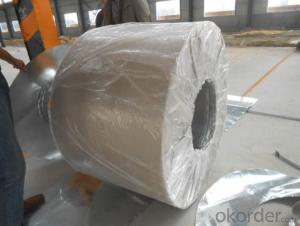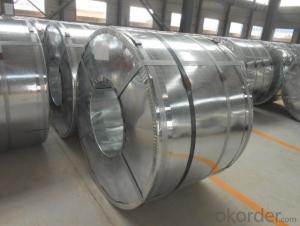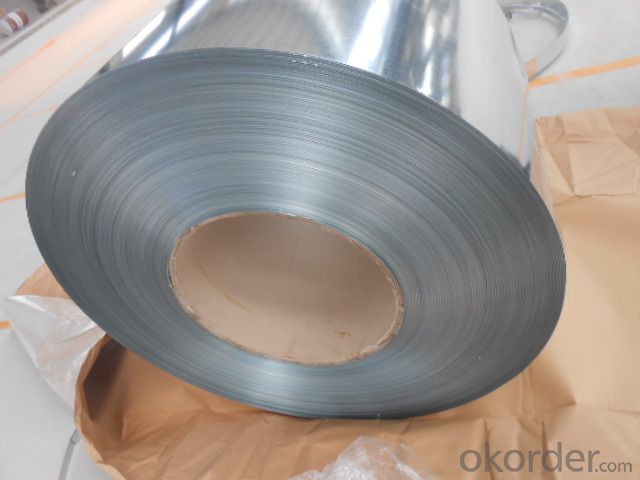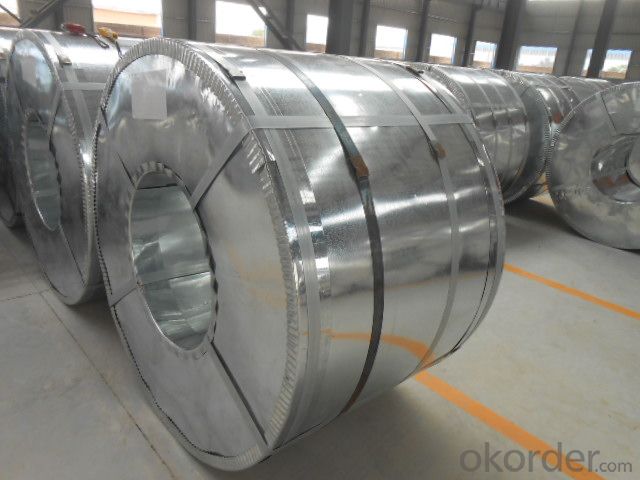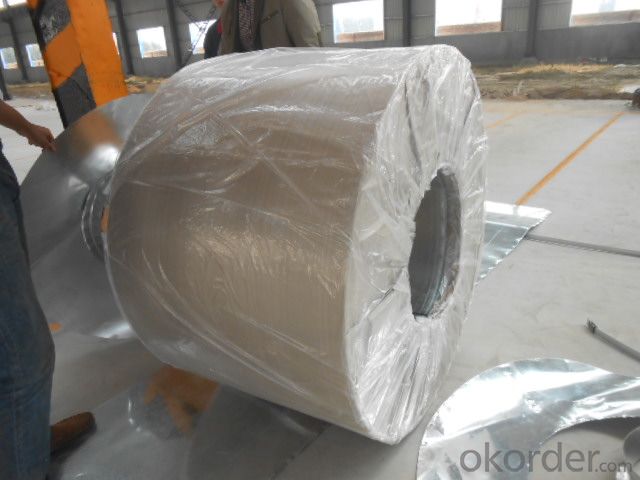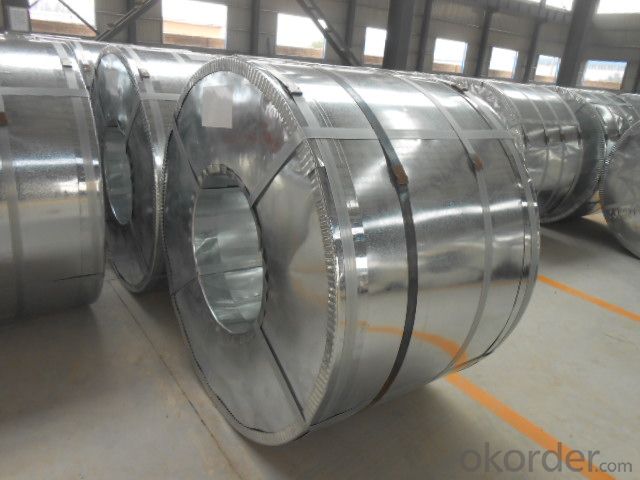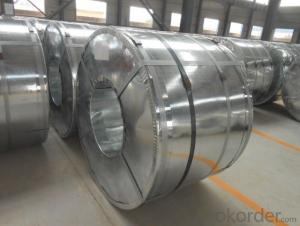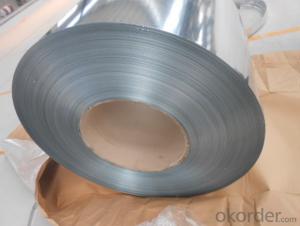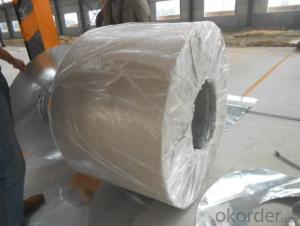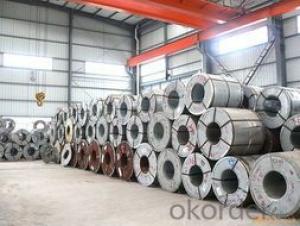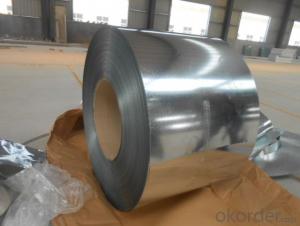JIS G 3302 GALVANIZED STEEL COILS PRIME
- Loading Port:
- China main port
- Payment Terms:
- TT OR LC
- Min Order Qty:
- 25 m.t.
- Supply Capability:
- 10000 m.t./month
OKorder Service Pledge
OKorder Financial Service
You Might Also Like
Prime Galvanized steel coil
Packaging & Delivery
Packaging Detail: seaworthy export package
Delivery Detail: on request
Specifications
1. more than 10 years’ experience on this field
2. advanced equipments
3. competitive price
4. soonest delivery
Product Description :
Commodity
Hot dip galvanized steel coil
Technical Standard: JIS 3302 / ASTM A653 / EN10143/ GB/T 2518
Grade:DX51D/ S250,280,320GD,SGCC,SGHC,SGH340,SGH400,SGH440,G450,G550
Types:Commercial / Drawing / Deep Drawing / Structural quality
Width: 900mm/1000mm/1219mm/1200mm/1220mm/1250mm
Thickness: 0.2mm~4.0mm
Type of coating: galvanized
Zinc coating: Z40-275g/m2,Z40-Z450g/m2
Surface treatment: zero spangle / regular spangle/ big spangle
ID coil: 508mm or 610mm
Coil weight: 3-10/MT per coil
Package: Properly packed for ocean freight exportation in 20''container
Application:: home appliances, constructions, building, machineries
Our Advantages :
1. Expertise:
More than 10 years of manufacture: we know how to properly handle every step of production.
2. Competitive price:
We can offer competitive prices to our customers.
3. Accuracy:
We have excellent technicians and leaders, which can ensure our products are exactly what you want.
4. Materials:
All galvanized steel coils are made of high-quality raw materials.
5. Certificate:
Our products are certified by ISO9001.
6. Productivity:
We have large-scales of production lines,, which can guarantee all your orders will be finished in earliest time.
Hr CGL Technical Process:
Coil loading-> uncoiling-> cutting-> welding-> entry accumulator-> Heating and deoxidization-> galvanizing-> air cooling->water quenching-> air dryer-> tension leveler-> Passivation->air dryer->exit accumulator-> oiling-> cutting-> recoiling->coil unloading-> packing
The furnace heating style: improved Sendzimir heating technology
Hourly output: max.76.3t/h
Process after coating: tension leveling, Passivation or oiling
Our Service
Our quality
Test Equipments of Prepainted Galvanized Steel Coil : Salt-spray tester; Atomic absorption spectrophotometer; Rockwell typer hardness tester; Tensile test machine; Metrohm titration; Laboratory Bend test machine.
Our packing
Properly packed for ocean freight exportation in 20''container, galvanized metal fluted rings on inner and outer edges, galvanized metal & waterproof paper wall protection disk, galvanized metal & waterproof paper around circumference.
R&D department
R&D department concentrates on researching and developing reliable products with best quality. The quality department test and control every process of production to guarantee the best quality of products
- Q: I noticed a friend's appliances are not magnetic, and mine are. Both are stainless steel. Are there two types of stainless steel or something? Thanks
- If the non magnetic one is has a brighter finish it may be that it is a ferritc stainless steel which depends only on high chromium content to keep it stainless,the duller one is likely to be the austenitic type which contains nickel as well as chromium and is usually non or only faintly magnetic and with a dull finish.Chromium rich stainless steels(ferritic and martensitic grades) are designed to be used for cutlery and strength application are always strongly magnetic (quite often permanent magnets).Stainless steels containing at least 18%chromium and 8+% of nickel are designed to be corrosion resistant and weldable,this type of steel(austenitic) is not ferromagnetic in the annealed state but the lower grades do become magnetic after cold work(hammering bending etc.The difference between magnetic grade or not rests in the crystal structure.In the austenitic types the structure is the same as that of gold and copper which is cubic close pack and,in steel,is a non magnetic form;but in low grades cold working can cause some breakdown of the austenite to the magnetic room temperature form of iron known as ferrite.Ferrite has the ordinary body centred body centred cubic form of iron which is magnetic.All of the stainless steels depend upon Chromium to form an anti-corrosion barrier at their surface;but this is only reliable in oxidising conditions(like the open air)They nearly all discolour and even rust if trapped in damp conditions where oxygen potential is low(as under wet plastic or underground ).
- Q: For some reason, if you rub iron oxide or lodestone (both very crumbly, dark, mineral-like materials) into soft, unhardened steel, their particles actually get stuck into the surface of the steel (that is, darkening it). My question is, how does this work? How come iron oxide and lodestone can get stuck, and how come other materials (like silicone carbide, for example) do not?My second question is, are there any materials that can get stuck into steel, that is also blue in color, and how would I best obtain it?
- the coloured metals that u often see are anodised, which means that their surface has reacted with air to form a protective, porous oxide coating. because it is so porous, highly-concentrated dyes can be injected into them to colour them.
- Q: basically a builder told us steel is good but when we got MFI, BQ they only have acrylic
- Acrylic or fiberglass is best, the contractor probably told you steel because it may be cheaper. Acrylic can be repaired and or painted if you decide to change colors at a later date. Steel is the older cheaper technology and cast iron is way too heavy to mess with now.
- Q: What are the common surface defects in steel coils?
- Common surface defects in steel coils include scratches, pits, indentations, stains, and rust spots. Scratches can occur during handling or processing of the steel coils and can vary in depth and length. Pits are small depressions on the surface of the coil and can be caused by impurities in the steel or during the manufacturing process. Indentations are similar to pits but are usually larger and more noticeable. Stains can be caused by various factors such as chemicals, water, or other contaminants coming into contact with the steel surface. Rust spots occur when the steel is exposed to moisture or corrosive elements, leading to the formation of iron oxide. These defects can affect the appearance, quality, and performance of the steel, and it is important to address them to ensure the desired end-use of the coils.
- Q: How are steel coils stored and transported?
- Steel coils are typically stored in large warehouses or outdoor storage yards. They are stacked horizontally on top of each other, with wooden or steel supports placed between each coil to prevent damage. When it comes to transportation, steel coils are usually loaded onto flatbed trucks, railcars, or shipping containers. Specialized equipment such as coil racks or coil cradles may be used to secure and stabilize the coils during transport.
- Q: Is boron steel or carbon steel a harder metal? Which one is more flexible?
- Boron Steel
- Q: Which of the two are better for exhaust manifolds, im guessing the stainless steel right?
- stainless
- Q: What website can I use to find a good picture that shows the atomic structure of a carbon steel?
- You know, I'd have to say it's very complex.
- Q: If rebar steel is welded together as opposed to 'tied' does it decrease the strength of the steel?
- If done correctly it should increase the tensile strength at least.
- Q: I want to make a stock removal knife, but I am really confused about what steel to use. I am just a beginner but I read o1 steel is great? Also I am kind of on a budget.
- O-1 is an excellent steel. If you've never made a knife before find an old file and use it. My first knives weren't that good, it took a little practice to get the geometry right so be prepared to burn some steel. The advantage of a file is it is already hardened, unless you have a torch or forge that will be near imposable for you to do. The most important thing in knife making is the heat treating. The best steel wont perform like it's supposed to. If you decide to use a file grind your blade out, keep the steel cool; do not let it get any color in it (brown, blue, purple) as this destroys the temper. When your finished put the blade in the oven at 400 deg for an hour. It should have a good hardness for a knife then. As for me, I use old car springs(5160), saw blades(L-6) for many of my blades, Good luck.
Send your message to us
JIS G 3302 GALVANIZED STEEL COILS PRIME
- Loading Port:
- China main port
- Payment Terms:
- TT OR LC
- Min Order Qty:
- 25 m.t.
- Supply Capability:
- 10000 m.t./month
OKorder Service Pledge
OKorder Financial Service
Similar products
Hot products
Hot Searches
Related keywords
